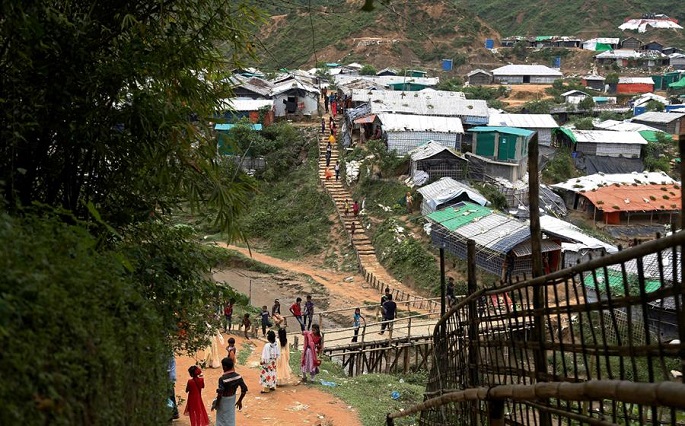Nervous Rohingyas wait in hope as Myanmar votes to elect new govt
Published : 07 Nov 2020, 11:29
The last time Myanmar held a general election five years ago, Mohammad Yusuf, a Rohingya refugee in Bangladesh, vividly remembers how he was crying at his home in Maungdaw district of the restive Rakhine State because the Muslim minority community is not allowed to vote.
“It was a sad day for us. We were all hoping to participate in the election but we were not allowed,” Yusuf told EFE over the phone from the Kutupalang refugee camp in Cox's Bazar, Bangladesh.
The 28-year old refugee appeared nervous as Myanmar prepares for voting again.
The general election in Myanmar to be held on Sunday gives many Rohingya refugees like Yusuf a glimmer of hope to end their misery in the Bangladesh camp and return home.
“We have nothing to do now but only pray,” said Yusuf, a former Rohingya community leader of a camp in the southwest of Bangladesh.
“Last time we were hopeful after Aung San Suu Kyi came to power. We thought as a former political prisoner she would understand our problem. But it was not the case.”
Yusuf voted once in his life in 2010, but that also made him feel betrayed.
“We voted for (former president) Thein Sein’s party but he forgot his promises later. Now we only trust Allah,” he said.
Myanmar granted Rohingyas voting rights in 2010, but the government revoked the right in 2015 due to nationalistic pressure.
Suu Kyi‘s National League for Democracy boycotted the 2010 election but won a majority to share power with the all-powerful military of Myanmar five years later.
Her electoral win in 2015 restored some hope for Rohingyas, but that was gone quickly after a brutal military crackdown on Aug.25, 2017.
Nearly 738,000 Rohingya refugees fled Bangladesh following a wave of persecution and violence in Myanmar by the army, which the UN described as ethnic cleansing and genocide.
Two attempts to start the repatriation of the refugees from Bangladesh to Myanmar failed as the Rohingyas refused to return home without a guarantee of their citizenship and security.
Abdur Rahim, a leader of the Rohingya rights group Arakan Rohingya Society for Peace and Human Rights, said Suu Kyi was a lesser of the two evils, anticipating that her re-election could reignite some hopes.
“If Aung San Suu Kyi wins this election, maybe something gets possible. We hope if she is re-elected, it will be good for us because she made certain promises in the ICJ (International Court of Justice),” he told EFE.
“If Suu Kyi loses, it (the repatriation) will be delayed. A new government, a new president will inevitably take time to settle down. It may be too late for us.”
The Hague-based court in January granted a series of emergency steps requested by the mainly Muslim African state of The Gambia under the 1948 Genocide Convention.
The court ordered Myanmar to “take all measures within its power to prevent the commission of all acts" described by the convention.
Analysts, however, said the re-election of Suu Kyi, who personally defended Myanmar in the ICJ during its trial, would not guarantee the start of Rohingya repatriation.
“Myanmar has always been buying time to start Rohingya repatriation. Of late, they first mentioned about Arakan Army and then coronavirus pandemic,” Imtiaz Ahmed, a professor of International Relations at the Dhaka University, told EFE.
“Now they were saying to wait until the election was over. We do not know what they will come up with next."
He said he was not too hopeful that the election outcome would bring any change.
“If it is not Suu Kyi, the military-backed party would come to power. Suu Kyi did not do anything to suggest she was sincere enough to solve this issue.”


